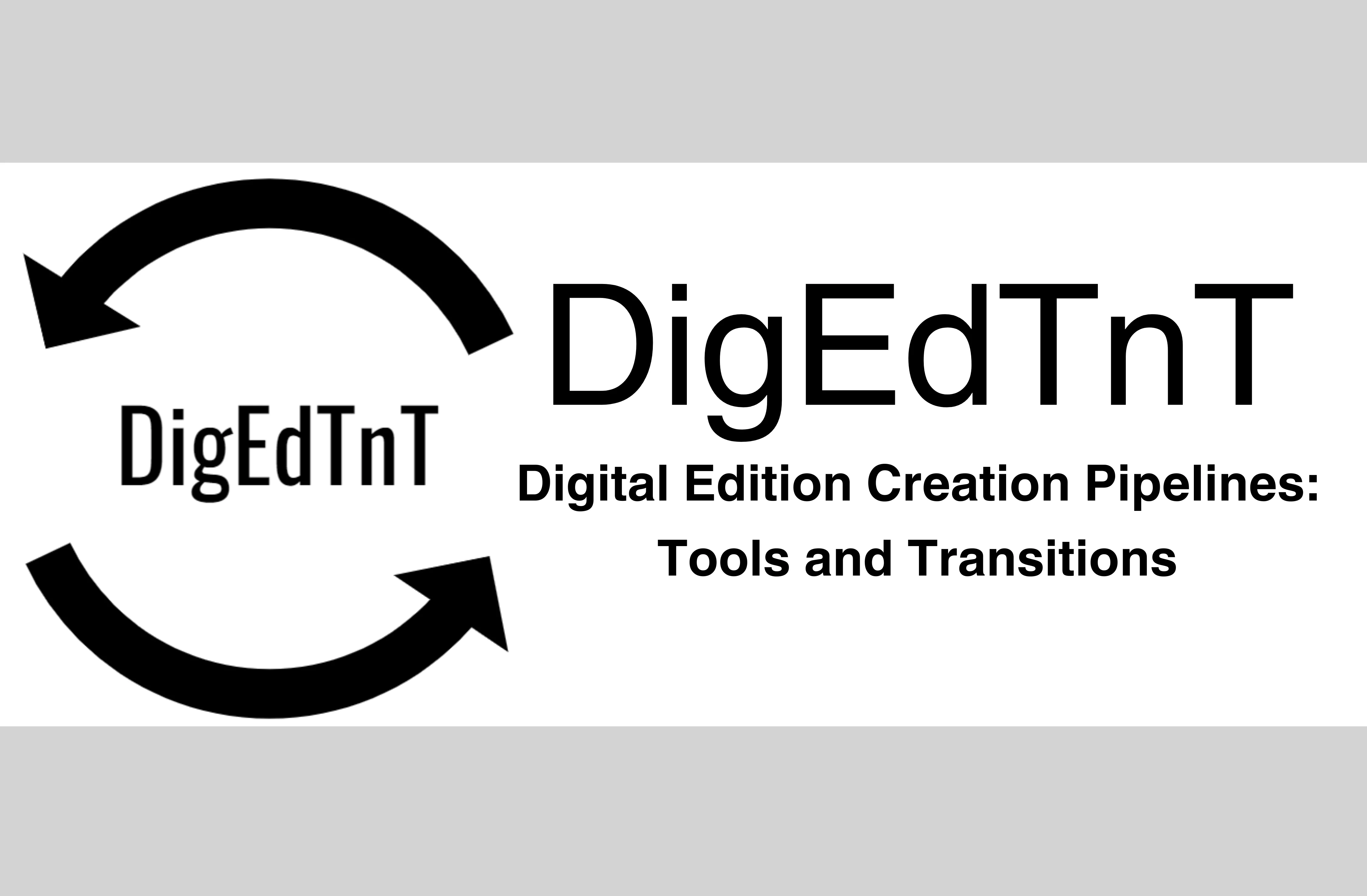
Digital Edition Creation Pipelines: Tools and Transitions
- Hosting organisations
- Department of Digital Humanities - University of Graz
- Responsible persons
- Helmut W. Klug
- Start
- End
Digital editions are a key area of the Digital Humanities and allow sources to be made available to the scholarly community. Edition Projects involve the acquisition, annotation, enrichment, and publication of source material and transform them into research data. They include textual, visual, and potentially quantitative data and often require customised user interfaces to represent domain-specific research questions. Although each edition project has its own specific requirements, individual steps can be identified that are necessary across projects. In summary, these steps are: transcription and management of images and text, transformation of transcribed text into textual structures (paragraphs, headings etc.) expressed as XML/TEI, modelling of relevant text phenomena, annotation of semantic information and named entities and creation of indices, creation of FAIR data and publication including a web representation. Each step employs different methods and tools.
The goal of the project is to create best practice guidelines and tutorials for the transitions between selected tools (e.g. Transkribus, From The Page, Ediarum, LAKomp, GAMS, TEI Publisher), as well as training materials focusing on the tools themselves. These tutorials and guidelines will be realised as an extension of the KONDE Weißbuch , tools and scripts will be published on GitHub. The resources will also be integrated into the respective community infrastructures (e.g. DARIAH Campus ). This ensures that future edition projects can easily and efficiently plan their customised workflows. Common tools can thus be evaluated and improved with respect to their requirements, as well as how they can better interact with other tools.
Keywords: digital edition, tools, tutorials
Outcomes

- DigEdTnT: Workshop – Meet the Tools and Developers
A first hybrid workshop was held: The tools covered in this workshop were Transkribus, FairCopy, FromThePage, ediarum, IIIF and an evening lecture entitled “Tools for digital editions as helpers and hurdles: How do we take control of the tools?”
The results of the workshop were published on the project website. Two tool descriptions, FromThePage and Transkribus, have already been finalised and published on the same platform. Two transitions are being worked on using example projects: from FromThePage to ediarum and from Transkribus to FairCopy.
Ulrike Henny-Krahmer @u_henny von der Universität Rostock gestaltet die Abend Keynote: “Tools für digitale Editionen als Helfer und Hürden: Wie nehmen wir die Werkzeuge in die Hand?” @ideinfo @DH_Graz @AtClariah #DigEdTnT pic.twitter.com/B2RuKp02oU
— Christopher Pollin (@LurchPollin) February 23, 2023
Impression from the workshop in February 2023.
FairCopy presented by @nick_performant
(Nicholas Laiacona) from @PerformantSoft
. https://t.co/6DII3vsEXb #DigEdTnT @DH_Graz @AtClariah #FairCopy pic.twitter.com/ZGVRNd8JFF— Christopher Pollin (@LurchPollin) February 23, 2023
Workshop presentation: Tool for annotation.
- DigEdTnT Webinar Series – Digital Editions: Tools & Transitions
In autumn 2023, a series of webinars were offered in which the transitions of the tools were presented and feedback was obtained from the participants in order to improve the publication process, as well as to share and transfer knowledge.
Other external speakers were also invited to present tools that were not yet covered in the first workshop, such as are ba[sic], OpenRefine, correspSearch and teiPublisher.
- Best-Practices available via Zenodo
The project DigEdTnT aims to develop best-practice pipelines and tutorials for selected tools. These tools aid in various stages of digital edition creation, including image and text management, transcription, text phenomenon modeling through appropriate markup languages, semantic annotation, and creation of indices. A key goal is to address transitions or challenges encountered when transferring outputs between tools, like from FromThePage to ediarum for further annotation.